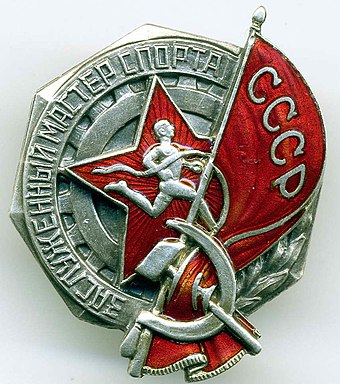HIST 5212W: Sport and Ideology in the 20th Century
Winter 2023
Instructor: Prof. Erica Fraser
In this seminar, we will pair one new-ish historical subtopic (sport) that has struggled to be taken seriously with another, older topic (ideology) that has a deep historiography and a very serious intellectual history base. The goal of investigating this pairing is to help us consider a.) the relationship between the two topics; b.) whether different ideologies have generated different relationships to sport and fitness in those societies; and c.) how historians-in-training (ie: you, in your own thesis or MRE projects) might generate new questions within established fields.
Political ideologies tend to dominate histories of the 20th century, especially fascism, communism, liberalism, imperialism, and conservatism, among others. Across that spectrum, how a state’s political culture or society defines sport, fitness, movement, physical dis/ability, and health consistently reflects the broader ambitions of that state and society. While we might be tempted to assume that only authoritarian regimes attempted to control sport and fitness this way (such as with the image above and made famous by the Big Brother-directed calisthenics in Orwell’s 1984), sport and politics do routinely mix, and are imbued with particular meanings, by states invested in a variety of ideologies.
We will consider several mini case studies from particular countries and sports, such as the Olympics in Nazi Germany, football in the USSR, cycling in France, hockey in Canada, baseball in the United States, and more, but we will also take a broader intellectual and historiographical approach to the questions outlined above.
I am a historian of the Soviet Union, and we will focus mainly on the Soviet Union and Europe in this class, with some examples from North America and other parts of the world when possible. You are welcome to pursue research topics on ideologies or parts of the world we have not studied in class, so long as they complement our theoretical work and the course themes.
Class Format:
The course will consist of one 3-hour seminar per week, which will primarily involve student-led discussions of the assigned readings (normally 3-4 academic journal articles or book chapters, or one short book, per week). Attendance is mandatory for success in this class, and in-person attendance is strongly encouraged (subject to public health regulations at the time). Students who require online options for health reasons will be accommodated via video links.
Assessment:
A major pedagogical goal of this class is to help you practice forming historical and historiographical arguments, and responding to those from others, in both oral and written form. To that end, your engagement in the seminar discussions will comprise at least one third of your overall mark. Written assignments will include reading responses, peer review, and a research paper broken down into stages (proposal, outline, introduction, etc).
Texts:
Readings will consist of book chapters and journal articles available electronically through the library catalogue or other resources available for free online. One or two short books might be required for purchase.
Questions? Feel free to email me at erica.fraser@carleton.ca
